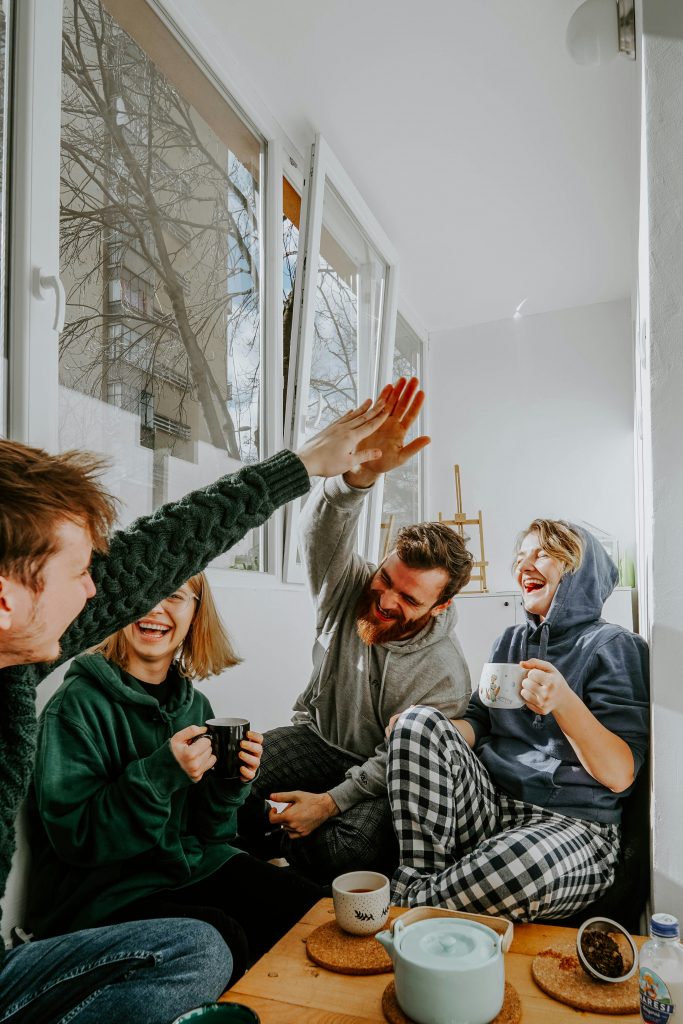I believe that during our lifetime we face different crises. From being a student and looking for new connections to tackling the stress and upheaval of professional life to caring for our loved ones when they are in despair. The crisis I would like to draw on today is a bit different.
Having been using some of the social media platforms for more than 10 years, I started to feel stagnant. I open some of the messaging applications and feel indifferent. The thrill and excitement of communication have left me and disappeared into thin air. Maybe it could be attributed to the consumerist society we’re living in, or the fact that I’m experiencing millennial fatigue.
Recently, I’ve noticed a growing trend toward authenticity and a desire to move beyond the polished facades we see online. The “Be yourself” movement resonates deeply with me, and it seems to be gaining traction, especially with tech-savvy folks. It’s about rejecting the pressure to portray a perfect life and valuing genuine moments – the messy, the mundane, and the truly human.
Leah Asmelash in an article for CNN says that authenticity, “has existed before, of course – confessional essays on blogs were staples in the early days of the internet and, more recently, every young person had a “finsta,” or fake Instagram, to post messier versions of themselves deemed unsuitable for their polished main pages.” We can see that the urge to be yourself on the Internet has always existed, yet we have abandoned it.
Instead of fostering comparison and anxiety, social platforms can become a way to truly connect with others. We could build communities based on shared experiences, honesty, and the everyday moments that make up a life.
This article will explore this exciting turn. We’ll look at the “Be yourself” philosophy, its strengths, potential challenges, and the exciting possibilities it opens for a more authentic, supportive online world.
Time to let go of the superficial online presence and be yourself

In the age of Instagram filters and carefully crafted online personas, the pressure to present a flawless image often overshadows the value of genuine connections. Therefore, being real encourages individuals to embrace their honesty and be true to themselves in every situation. This movement or way of living has an effect on relationships. It nurtures a deeper and more meaningful connection between partners, friends, and family.
One of the key elements is the rejection of superficiality. In a society where people are bombarded with images of idealized lifestyles and relationships, the pressure to conform to these unrealistic standards can be overwhelming.
As creativity has become rare, individuals can break free from the constraints of societal expectations and build relationships based on genuine understanding and acceptance. I would compare the “Be yourself” way of living with Mindfulness practices—you try to stay in the moment and be your vulnerable self.
Being vulnerable and imperfect can be scary, yet rewarding
But is it all sunshine and selfies? I know that showing your true self make-up free or with dishevelled hair can be daunting and uncomfortable. But just know that on the other side of the screen, you can find your friends eating pasta and splashing tomato sauce everywhere. They’re lying in bed in an old tracksuit reading a book, or trying to repair a leaking faucet. There can be smiles, frowns or laughter—what counts is the genuine emotion at a given moment.
The most important part is to find a social media platform that would suit your needs. There are Facebook groups, Discord servers or Reddit threads where like-minded people are lurking for you. Don’t be afraid to extend your hand towards uncertainty.
LifeBonder can make looking for friends hassle-free

While mainstream platforms often struggle with issues like addiction, negativity, and inauthenticity, a good example is LifeBonder. It aims to reimagine social media as a tool for nurturing genuine connections and boosting well-being.
Here’s what sets LifeBonder apart:
- Focus on real-world connection: LifeBonder encourages users to move beyond the screen and meet up in person for shared activities. It facilitates finding people with similar interests in your local area, promoting real-life friendships and community building. Always wanted to try yoga? Want some company for your plant-based dinner? LifeBonder has you covered.
- Combating loneliness and isolation: The app recognizes the rising issue of loneliness in the digital age and aims to combat it by providing a platform for meaningful interactions and combating social isolation. We lived through a global pandemic that made us all feel depleted. It’s time to change that.
- Prioritizing user well-being: LifeBonder stands against the addictive nature of many social media platforms. It serves as a trampoline towards healthier real-life relationships.
- Combatting negativity: LifeBonder strives to create a safe and positive online space free from negativity and harmful content often found on other platforms.
Final Remarks
The “Be yourself” philosophy, like the LifeBonder app, is a powerful counterpoint to the carefully curated online world that dominates our lives. It’s a call to embrace our authentic selves and connect with others in real time, experiencing genuine understanding and trust.
Both the movement and the app urge us to ditch the filters and staged moments, and instead, connect in the “here and now”. This vulnerability, being present in the spontaneous moments, strengthens our bonds with loved ones. It can be scary to let go, but tuning into the deepest corners of your soul is the way to do it.



